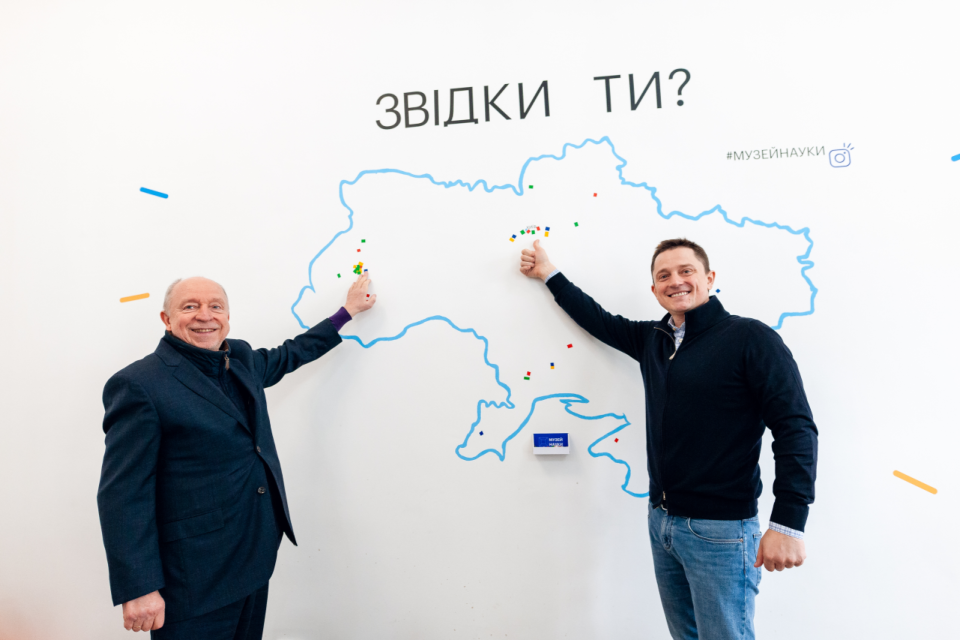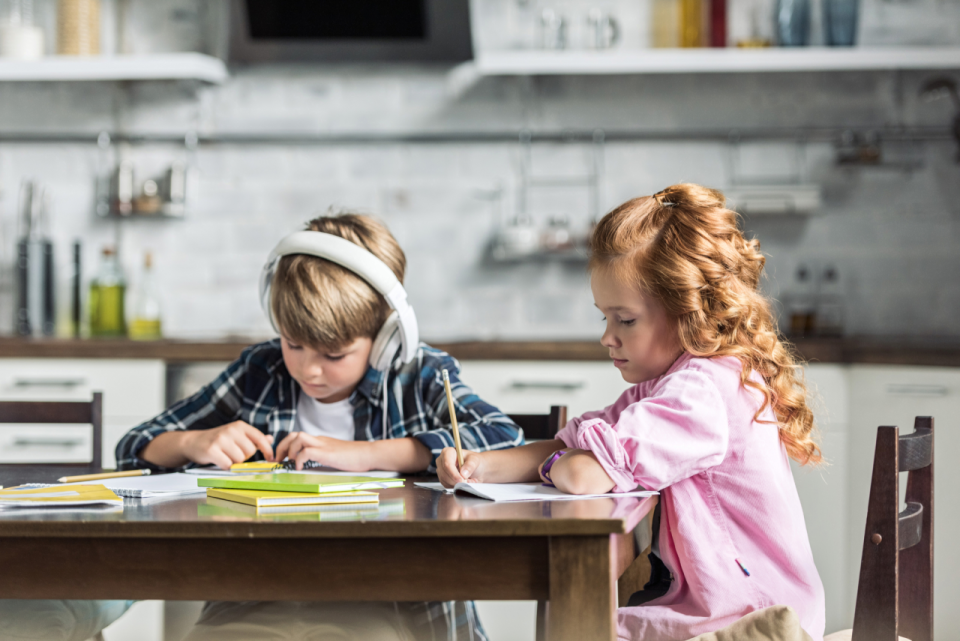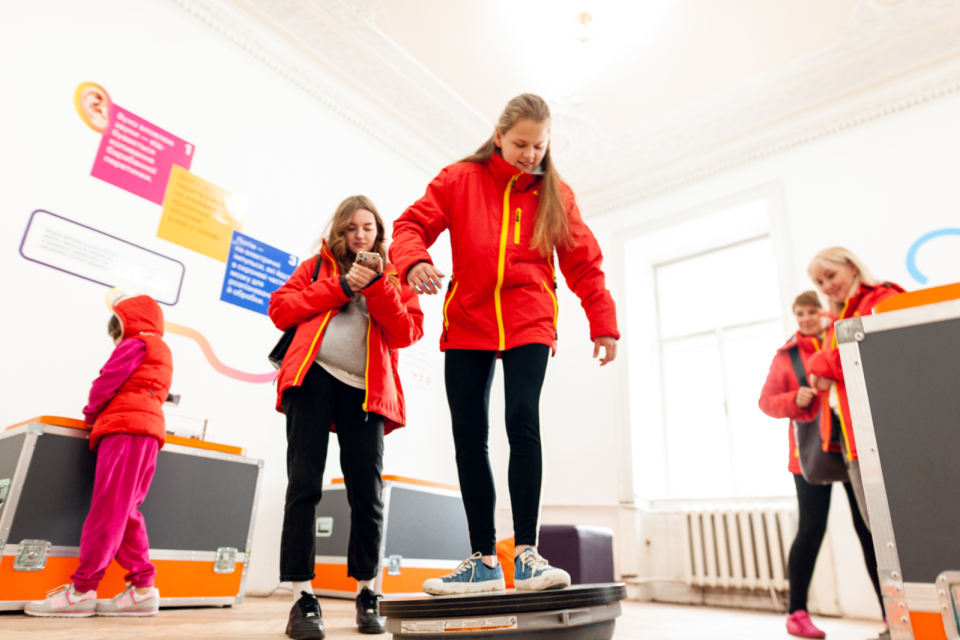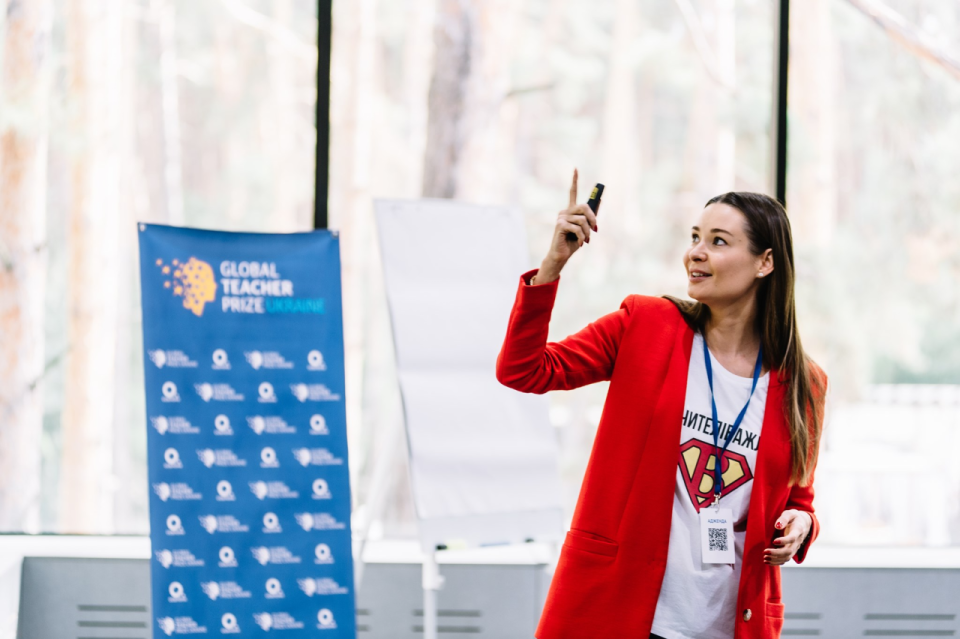Educational Front. How Ukraine Is Saving Its Future From Dusk

Light of Knowledge Among The Ashes of War
The horrendous numbers about the education system's destruction are increasing daily.
Millions of children and teenagers with their loved ones fled from Ukraine, escaping the horrors of war. About 4 million of them completed this school year online and now use distance learning opportunities.
The return to offline of those who remained in Ukraine is still being discussed from the point of view of security. In addition, the educational infrastructure has been destroyed due to the war. In mutilated Chernihiv, 27 out of 34 schools require various degrees of repair, and two are completely destroyed. Suffering Kharkiv is losing its higher education institutions, which were among the leading world rankings for the quality of education before the Russian invasion. Such estimation is impossible in the temporarily occupied regions and war zones, and it is already clear that Ukraine will have an “infrastructural desert” there.
Fortunately, the West of Ukraine, where millions of Ukrainians and their children have found refuge, is not being completely destroyed. Still, the educational infrastructure facilities serve as shelters for refugees. And while there is no apparent prospect of resettling people in more acceptable living conditions, the students of the western regions have nowhere to return to their studies.
In addition to the infrastructure destroyed by the war, the security issue remains relevant; the Ukrainian educational community and even the relevant ministry are not ready to give clear recommendations on further forms of education at the beginning of August (a month before the Day of Knowledge). Only 10% of schools in Ukraine have bomb shelters. An even smaller part of educational buildings has basements, which are unsuitable for long-term stay or study. After all, who will take responsibility for the lives and safety of students among the officials of the field of education or administrations of educational institutions? At the beginning of the war, the enemy targeted buildings with the inscription "CHILDREN" and is now firing rockets at crowded shopping centres and medical facilities in relatively safe regions far from the front line, as happened in Vinnytsia.
Therefore, while Ukrainian defenders protect our independence, statehood, historical and national identity and the inalienable right of the Ukrainian nation to exist, educators defend their own front. It is designed to save our future in the family of civilized, educated nations of the world and advanced Ukrainian science.

The review includes the most prominent projects and assistance from international partners that save the future of Ukraine, helping our education to survive without exaggeration.
Official Point of View
Ukrainian students have lost the opportunity to study for about half a year, so the relevant ministry, for its part, is making efforts to popularize online platforms for education. On a special page of the official ministerial website, a list of remote platforms for learning, self-development, assistance and verified education information is being collected and constantly updated.
Here, among dozens of positions, you can find resources for learning and entertainment for the youngest children from 3 to 6 years old, and many platforms for teaching older children and teenagers within the school curriculum, career guidance and preparation for admission to higher education institutions.

The ministry's list includes many Ukrainian and foreign platforms for learning foreign languages, acquiring and developing programming skills, and specific scientific and school disciplines.
It is worth reminding that most Ukrainian media platforms and communication operators have provided Ukrainians with free access to all online learning opportunities.
Free access to educational content is available on MEGOGO, Volia TV, Kyivstar TV, Vodafone TV and others. Mobile operators do not charge for the traffic of their subscribers for access to most educational platforms.
Small Academy of Sciences of Ukraine
Currently, the Small Academy of Sciences of Ukraine focuses on offline educational formats in safe regions of the country and publicly available online projects. The digital platform of SAS is classes, lectures and meetings, the number of which reaches 30 cognitive and educational activities in an interactive format every week.
Historically, the National Academy of Sciences is rightfully considered one of the most effective incubators of scientific personnel among talented young people. The Small Academy of Sciences is the only UNESCO Centre for Science Education in our country. Its partners include the United Nations Children's Fund (UNICEF) and UNFPA, the United Nations Population Fund.
The President of the National Academy of Sciences Stanislav Dovgyi regularly encounters the heads of international organizations in the humanitarian development field, seeking support for educational projects and presenting growths for joint projects. Among them is the development of a network of scientific and educational spaces throughout Ukraine with offline and online museums, scientific laboratories, business incubators, co-working centres and other elements of continuous education based on innovative approaches.

Stanislav Dovgyi and his children, Oles and Oksana, take care of educational projects of the National Academy of Sciences as, for example, the Museum of Science at the Exhibition of Achievements of National Economy (VDNH), which is very popular among Kyiv residents. Currently, the family and the National Academy of Sciences are planning similar scientific and educational centres in other safe large cities in western Ukraine. One has already opened in Lviv, and now Chernivtsi and Uzhhorod are being considered as the following locations. A large number of children and young people are now concentrated there. Unfortunately, plans to create such facilities in Poltava, Lutsk, and Vinnytsia were postponed due to the war. And the Mariupol Science Museum is currently a memorial. It will open in one of the safe cities and will be named in honour of the destroyed hero city, and its exposition will include exhibits rescued from the Mariupol museum. But the plans were only postponed, not cancelled. In one of his interviews, Oles Dovgyi says that after the war, his family will make efforts to develop Science Museums throughout Ukraine further. Naturally, another mega-project of SAS and his family will continue — the creation of a campus and a scientific base for young scientists to live and study in Pushcha-Vodytsia, near Kyiv, with the expert support of the world's largest scientific laboratories: NASA, Argon, and CERN.

Besides, the SAS team has launched many interesting online projects, with the help of which schoolchildren can have an exciting time during the holidays:
course with Nobel Prize laureates. Among the 50 guests of the project for Ukrainian youth, Daniel Kahneman, known for his works on behavioural economics, Professor at Columbia University and Nobel laureate economist Joseph Stiglitz, and other outstanding scientists who define modernity and the future in the fields of chemistry, physics, medicine and physiology, fundamental research, social sciences and other fields;
career orientation course for teenagers “Conscious” (“Svidomi”), which includes 12 open lectures with psychologists, 12 open meetings with star representatives of interesting professions;
a video task in chemistry and biology with 57 video recordings of experiments and tasks useful not only for refreshing school knowledge but also for family leisure;
Science-talk project — open interactive conversations with leading scientists about the specifics and work in various fields of science.

The representative of UNICEF in Ukraine, Murat Shahin, evaluates the future of humanitarian cooperation and the contribution of the Ukrainian Academy of Sciences to it, "The success of our projects largely depends on interaction with Ukrainian partners. And we see great prospects in cooperation with such a reputable organization as the Small Academy of Sciences of Ukraine — the UNESCO Centre for Science Education." He stated this at a meeting with Stanislav Dovgyi, President of the National Academy of Sciences, to discuss joint projects.
“Osvitoria”. Distance School and General Development of a Child
The Public Union for the Development of Education is well known for its annual "Oscar" for the country's best teachers — the Global Teacher Prize Ukraine. Before the war, the union's goal was to reform and develop school education. Now there is a new focus. It aims to restore the educational process for 7 million Ukrainian children who suffered from the war and its consequences in one way or another. The primary goals of “Osvitoria” are the restoration of education during the war, development and support of the educational community, training and support of teachers, and ensuring access to education for all Ukrainian children.

Even during the war, “Osvitoria” develops an ecosystem of digital channels and tools for continuous learning. Together with UNICEF, the union created the platform OSVITANOW.ORG, which has answers to all urgent questions of parents and teachers about education during the war. An important step was also the update of the iLearn platform, which helped Ukrainian children to successfully prepare for the national multi-subject test (NMT). Together with experts and the best teachers of Ukraine, “Osvitoria” recorded new webinars for preparing for the NMT. Their viewing reached 2 million views, and more than 100 thousand children from different cities of the country prepared for the multi-test on the platform for free. Currently, with international partners, the union is creating a gamified educational product — a mobile application for children in grades 1-4 to learn the Ukrainian language and mathematics. According to the founder of the union Zoia Lytvyn, the war affected the educational process but did not stop it.

"Education is a powerful weapon in the fight for the future. During the war, we aim to do everything possible to continue education for Ukrainian children. Thanks to cooperation with international partners, we create projects that allow children to get quality education even during the war. We see how teachers bravely hold the educational front in this difficult time. We acknowledge their contribution and heroism, so we want to support and remind everyone that teachers are important. Especially now. That is why we are not cancelling the Global Teacher Prize Ukraine this year but changing the structure. Now we are collecting stories about the heroes of the educational front, to tell about them to all of Ukraine and the world," adds Zoia Lytvyn.
Also, “Osvitoria” is working on implementing a critical educational reform, so teachers will learn how to introduce the New Ukrainian School (NUS) into primary secondary education using the example of grades 5-6.
"We are doing everything we can to help Ukrainian children by supporting online education from kindergarten to 11 grade. Thanks to the launch of this platform, we can help ensure continuity in children's education so that they can finish the school year," commented Murat Shahin, Head of the Ukrainian Representative Office of UNICEF, on the common goals of the project partners.
Education of the New Era: Online and Hybrid
Along with the deep penetration of the Internet and the evolution of digital ecosystems, specialized platforms entirely focused on hybrid and online learning have appeared. Most often, you can hear favourable reviews about the EdEra and EdCamp Ukraine projects from educational specialists of various levels. They are the epitome of fully distance learning for children and teenagers and a professional development platform for anyone working in education. These are different projects, but what they have in common is education. This is reflected in the common part of their names “Ed” (from the English word “education”).

EdEra (Education Era) is an online ecosystem founded by Illia Filipov and developed with his like-minded partners Olia Filipova and Artem Ilchuk to train and develop schoolchildren and educators. Its opportunities are available both to those in Ukraine and those who had to leave their homes because of the war. The project aims to make education high-quality and accessible to everyone. All courses here are free of charge; however, after their completion, everyone can thank with a donation. Learning here is taken quite seriously: a course of lectures with short videos, questions, and tasks for better assimilation of the material is accompanied by notes with illustrations and explanations. Every week students do homework and at the end of the course they have a regular exam. You can study at any convenient time and a special certificate is issued to the most conscientious students and trainees to confirm successful completion of the disciplines. This is why we find the educational platform EdEra in the list of the already mentioned Ministry of Education. There is a wide range of online courses and practical advice on security during the war. “We create information on providing first aid, searching for bomb shelters, preparing for evacuation. This training can save lives,” Illia Filipov revealed the platform's goals for such new courses.
The professional initiative EdSamp Ukraine, the chairman and founder of which Oleksandr Elkin is a member of the Advisory Council for the Development of the General Secondary Education System under the President of Ukraine, is aimed to improve the professional level of teachers so that they are the most effective in their profession under any circumstances. The Ukrainian network connects 40,000 professional educators and is part of the EdCamp international movement. Among the partners of the Ukrainian organization are the United Nations Population Fund and the United Nations Development Program, the International Renaissance Foundation, USAID_VzaiemoDiia and the Representation of the European Union in Ukraine and the US Embassy.
From February 24, 2022, EdCamp Ukraine also joined its front. Anti-crisis initiatives to support educators, parents, children, and youth. Its activists decided to make the summer vacation as meaningful as possible. The organization implemented online development and training camps for schoolchildren of any age for the first time. “Smart Summer” helps schoolchildren to spend time during the holidays interestingly and informatively in communication with peers and mentors, in exciting developmental activities, improving themselves, their abilities and talents and keeping them in practice.
As you can see, if you have the desire and motivation, you can find affordable ways not to stop in development and not to interrupt your education since every minute devoted to education contributes to Ukraine's victory not only today but decades after the war.
Read the original article on The New Voice of Ukraine

